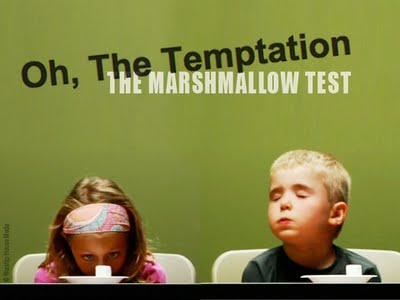

Later assessed in adulthood, Mischel’s research team found that “those who had delayed longer in preschool self-reported that they were able to pursue and reach long term goals, used risky drugs less, had reached higher educational levels, and had significantly lower body mass index.” While at times comical in his description of the children’s coping skills, it is clear that the variances in self-control, the methods of distraction and their delayed gratification are ever present from a young age. The researchers then watched the children as they wrestled with the temptation, making observations and finding trends related to coping behaviors and strategies applied by each. With this pretense, children were offered a smaller reward (one marshmallow) immediately, or two marshmallows if they waited the designated time, both options were visible. Taking place within the Bing Nursery School at Stanford University, the Marshmallow Test was first conducted with the intention of assessing willpower and the preschooler’s ability to delay gratification for the sake of future reward.

The Marshmallow Test "The traditional belief that willpower is an inborn trait that you either have a lot of or you don’t (but cannot do much about either way) is false." - The Marshmallow Test, page 230 The results have created compelling arguments for the importance of willpower and the strategies available to develop, strengthen and nurture this within ourselves. Since then he has created longitudinal studies that have assessed these skills throughout the children’s lives and the impact on various facets of their life. Whether we require this skill within our personal realm, such as the need to resist dessert or our professional realm, such as the restraint to avoid social media pulls throughout the workday, Walter Mischel has debunked the concept of willpower in The Marshmallow Test and has devoted years of research and analysis to help his readers better understand the complexities around self- control and the opportunities to develop or strengthen it, and use it to our advantage.īack in the 1960s, Mischel and his team created The Marshmallow Test, a social experiment conducted on pre-school students that assessed the environment, circumstances, temptations and timing involved in harnessing willpower. Harnessing willpower and self-control is a challenge for all humans, but more so for some, than others. "If the conditions that facilitate self-control, and those that undermine it, could be identified, perhaps they could be harnessed to teach people who have trouble waiting to be better at it." - The Marshmallow Test, page 28


 0 kommentar(er)
0 kommentar(er)
